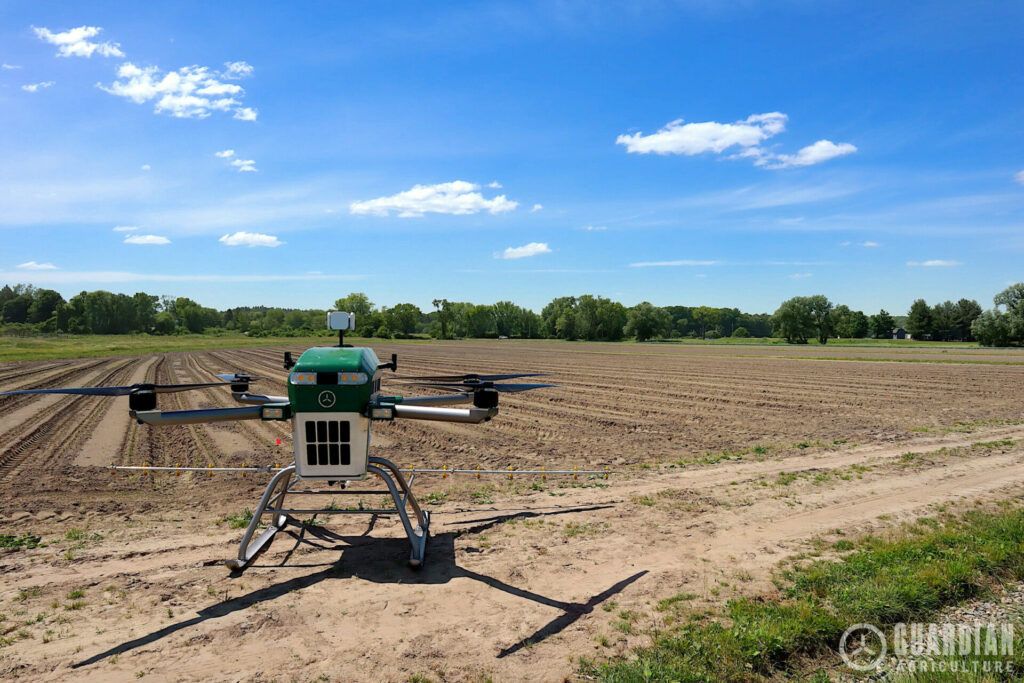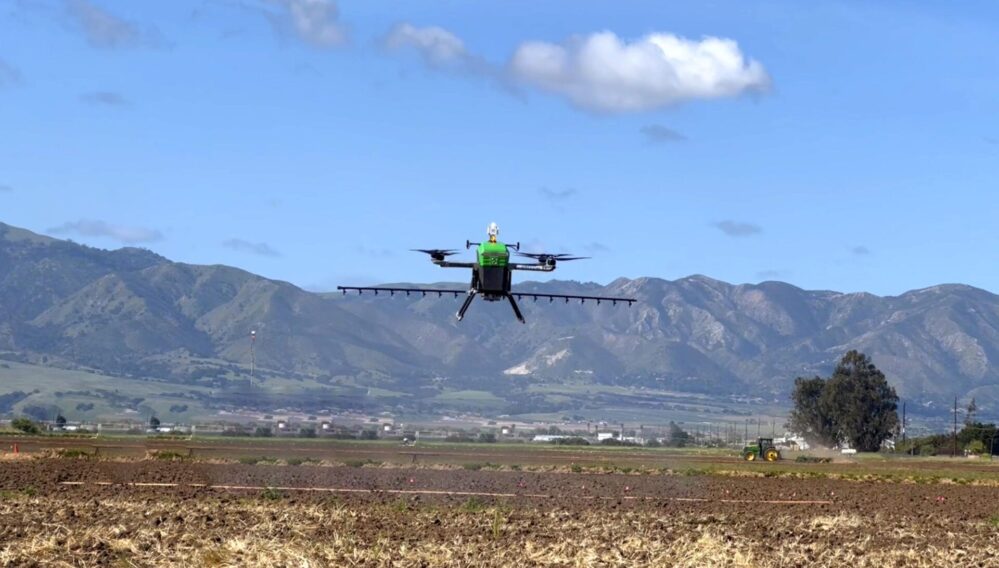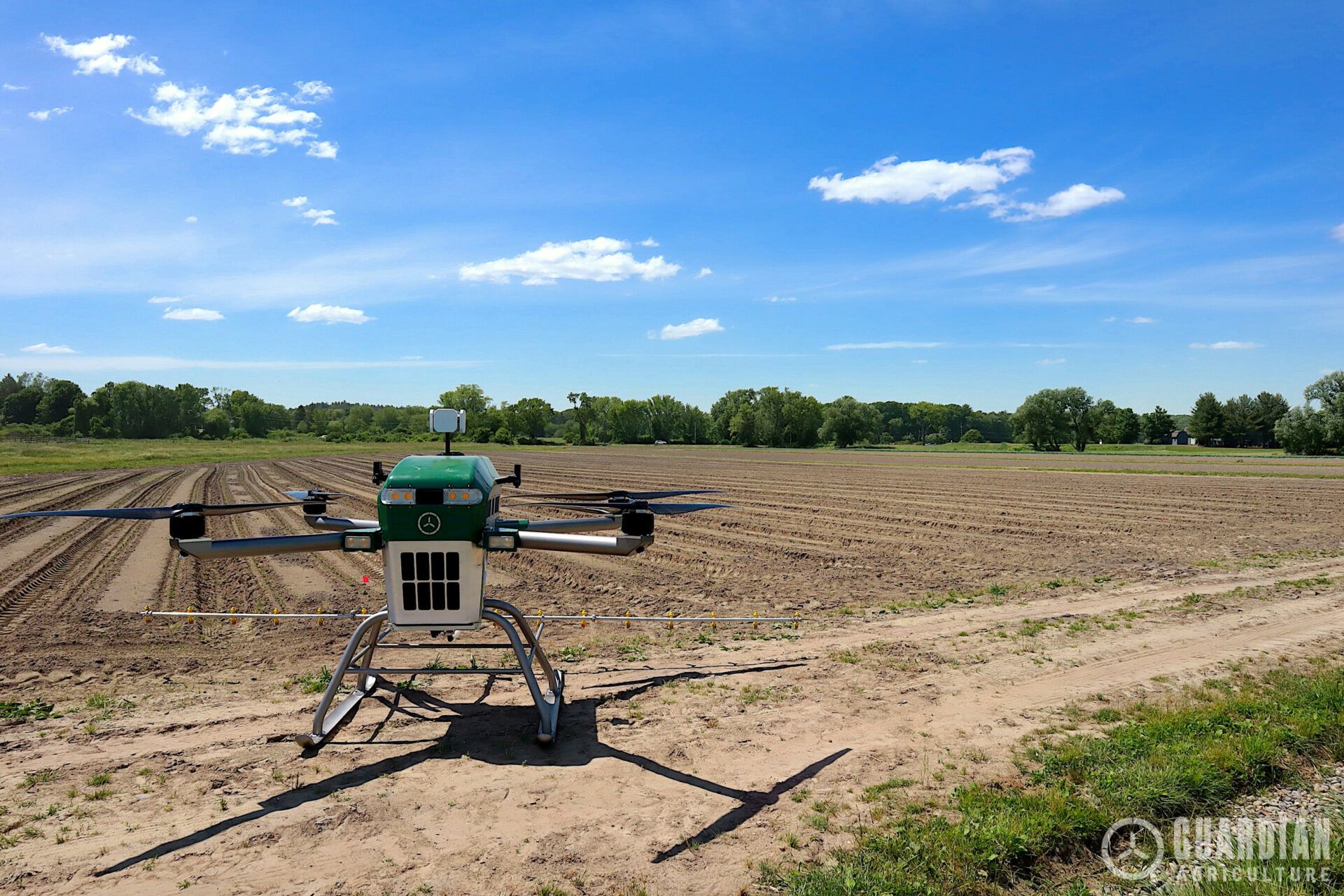- Guardian Agriculture has raised a $20 million Series A round led by Fall Line Capital to expand its autonomous drone technology to farms across the US and ramp-up manufacturing of its SC1 aircraft. The raise brings Guardian’s cumulative funding to $35 million.
- Founded in 2017 with a focus on large-scale agriculture, the Woburn, Massachussetts-based company has more than $100 million in pre-orders and will begin commercial operations to support customer (and investor) Wilbur-Ellis in Salinas Valley, California, this summer.
- The first Electric Vertical Take-Off and Landing (eVTOL) company with Federal Aviation Authority (FAA) approval to operate commercially nationwide, Guardian Agriculture has “taken a practical approach to building and deploying our technology that puts us well ahead of other eVTOL developers,” claims founder and CEO Adam Bercu.
- “Customers, investors, and regulators recognize that there’s no better application of electric, fully-autonomous aircraft than in commercial farming. This funding will allow us to begin and quickly expand commercial operations on real farms with paying customers sooner as we continue to strengthen our team and ramp up aircraft production.”

Why it matters
According to Bercu, while farmers are moving away from traditional aerial crop dusting and ground spraying equipment in favor of unmanned autonomous systems, most available systems are too small to provide growers with full-field coverage at a competitive price point. Guardian, he claims, is the only US company offering eVTOL aircraft that deliver the comprehensive coverage of traditional approaches at the same or lower costs, but with far greater precision.
“Like other unmanned systems,” he told AgFunder News (AFN), “Guardian’s craft deliver complete transparency and robotic control, enabling a greater degree of precision, visibility, and control than traditional crop-dusting methods, and significantly reducing drift caused by human error. Similarly, Guardian’s systems are easy to use, giving every grower the ability to own full-field aerial application with minimal training needs.
“Unlike other unmanned systems, Guardian’s systems are large and efficient enough not just to be cost competitive, but far less expensive in many circumstances than traditional crop dusting practices. That’s why there is such strong demand.
“While a large percentage of our pre-orders have come from farm service providers (custom applicators, retailers, etc), we’ve also had significant interest from farmers themselves. Interest is strong among both specialty and row crop growers.”
‘A greater degree of precision, visibility, and control than traditional crop-dusting methods’
He added: “We are currently producing our SC1 aircraft in Woburn. The Series A funding will help us accelerate the ramp-up of large-scale manufacturing of its SC1 aircraft.”
The SC1 aircraft, which comes with a supercharger ground station and software that can help farmers track fertilizer applications, can carry 200-lb payloads and spray 40 acres per hour. The aircraft also collects data that enables farmers to keep dusting records and determine how this impacts crop performance, said Bercu.
“Guardian’s SC1 is the first unmanned system designed for the American market. It’s the only one designed to compete cost-effectively with existing mechanized systems and deliver full-field coverage at competitive acres per hour. Additionally, Guardian’s systems are the only ones on the market that use standard booms, nozzles, droplet sizes, volumes, and pump pressures, enabling it to be a drop-in replacement for current crop protection methods.”
Enhanced reliability and performance
“Guardian is the first company to develop unmanned aerial application technology that’s made with aviation-grade engineering and manufacturing, which greatly enhances reliability and performance,” said Fall Line Capital managing director Clay Mitchell.
“Any farmer buying new machinery today can tell you about reliability problems as complexity has far outpaced quality control. Even beyond the cost savings and elimination of soil and crop damage, the first thing farmers will notice about Guardian’s product is that it works.”






